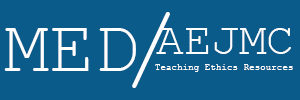OverviewS
ETHICS IN A NUTSHELL
Ethics in a Nutshell provides an overview of ethics and journalism ethics. It identifies the major approaches to ethics and models of ethical reasoning. The nature of ethics, range of ethics, theoretical and applied ethics, and types of theories are discussed.
DIGITAL MEDIA ETHICS
Digital Media Ethics deals with the distinct ethical problems, practices and norms of digital news media. Digital news media includes online journalism, blogging, digital photojournalism, citizen journalism and social media. It includes questions about how professional journalism should use this ‘new media’ to research and publish stories, as well as how to use text or images provided by citizens.
GLOBAL MEDIA ETHICS
Global Media Ethics addresses development of a comprehensive set of principles and standards for the practice of journalism in an age of global news media. New forms of communication are reshaping the practice of a once parochial craft serving a local, regional or national public.
THE SHADID CURRICULUM
The Shadid Curriculum draws from the journalism of those who have won or been named a finalist of the Anthony Shadid Award for Journalism Ethics, and encourages student journalists to place themselves in the position of making difficult journalistic decisions.
Teaching Ethics

These teaching resources, which are compiled by the Media Ethics Division of the AEJMC (Association for Education in Journalism and Mass Communication), cover a broad range of materials for teaching media or journalism ethics, including advertising, public relations and entertainment ethics.
Syllabi
| Title/Link | Author |
| Communication Law & Ethics | Joan Conners |
| Combined Law & Ethics | Jack Breslin |
| Sustainable Brands | Erin Schauster |
| Media Law & Ethics | Nicole Kraft |
| Media Ethics | Lee Wilkins |
| Mass Media Ethics & Social Issues | Kristen Alley Swain |
| The Meaning of (Virtual) Life | Sandra Borden |
| Media Ethics & Issues | Patrick Plaisance |
| Communications Ethics Seminar | Wendy Wyatt |
| Communications Ethics Seminar | Virginia Whitehouse |
| Professional & Research Ethics in Communication | Kati Tusinski Berg |
| Media Ethics | Maggie Patterson |
| Ethics & Issues in Mass Communication | Jan Leach |
| Communication Ethics | Sandra Borden |
Class Activities
| Title/Link | Author |
| Media Ethics Student Portfolios
Collection of students' personal code of ethics across disciplines |
Michael Bugeja |
| The Monster Exercise
Spotting the "monster" in news media |
Paulette D. Kilmer |
| Code of Ethics
Study a variety of codes of ethics and develop your own |
Keith Herndon |
| Personal Code of Ethics
Write a personal code of ethics for your ideal job |
Deborah Dwyer |
| Ethics in the News
Present on a news topic that happened in the last seven days |
Deborah Dwyer |
| Case Study Grading Rubric
Criteria, scale and rubric for grading |
Ann Auman |
| Media Ethics Class Group Activity
Choose a medium (e.g., TV, radio) and discuss how well they covered an event |
Bill Babcock |
| Creating a Class Case Portfolio
Choose a profession you'd like, find two cases in that field and write about them |
Ginny Whitehouse |
| Join Listserv
Joining two different classes online |
Thomas Cooper |
| Advocacy Communication
Using empathy and reflection in ethics |
Jacqui Lowman |
| PollEverywhere
For instant class polling |
Wendy Wyatt |
| Falling Man
Documentary for discussion |
Paulette Kilmer |
| Comic Books in the Classroom
Basic theory and well-known philosophers in comic book format |
Thomas Bivins |
| Media Non-Transparency
Summary on non-transparency and two hands-on activities |
Katerina Tsetsura |
| Ethics in the Workplace Roleplay
Role play activity for up to four groups |
Jack Breslin |
| Learning the Language of Interviews
Interview and transcribe to think through plagiarism |
Michael Longinow |
| Who Doesn’t Like Chocolate?
A way to increase class participation |
Norman Lewis |
| Sociology of Journalism & Media Ethics
Contextualize ethics with the sociology of journalism |
Dane Claussen |
| Teaching Potter’s Box
Pairing Potter's Box framework with a movie |
John Williams |
| Media Ethics Goes to the Movies
"Issue spotting" in movies |
Jane Kirtley |
| Teaching Agenda: Mentoring Method
One use of the socratic method |
Beverly Merrick |
| International Approach
Making a Model U.N. to consider ethics from international perspectives |
Tom Cooper |
| Ethical Evaluation of Campaign Ads
Assessing real-life campaign ads |
Lois Boynton |
| What Do We Mean by an Ethical “Value”?
Reflections on value |
Jack Breslin |
| Engaging with SPJ Code of Ethics
Applying the code of ethics to real-life scenarios |
Stephanie Bluestein |
| Truth Journal
Journal on how often you lie/feel lied to |
Donica Mensing |
| Ethics of Quote Approval
Learn and assess application of quote approvals |
Mike McDevitt |
| Ethical Implications of Empathic Listening
Role play to understand importance of empathic listening |
Mike McDevitt |
| Media Ethics Assignment Paper
Paper prompt for researching "ethics" |
Jacquelyn Lowman |
| Brass Check Presentations
Read a chapter of "Brass Check" and make a group presentation |
Ryan Thomas |
| What Would Aristotle Do?
Students summarize a philosopher and bring handouts to class |
Jacqueline Marino |
| Intensive Case Studies
Capstone team project to assess case studies around a topic |
Jane Singer |
| Z-Five Card Writing
Personal reflection and prompting exercise |
Beverly Merrick |
| Case Study Project
Choose a real-world scenario/interview those around it |
Kim Walsh-Childers |
| Journalist Interview Assignment
Interview a journalist about their real-life ethical decision-making |
Kim Walsh-Childers |
| Ethics Bowl
Team-based exercise around an ethics case study |
Sandra Borden |
| Ethics Issue of the Day
Partners present on a current communication ethics issue to the class |
Wendy Wyatt |
| Ethical Profile
Profile a communication professional about an ethical issue, paper and presentation prompt |
Wendy Wyatt |
| PR Role Plays
Role play exercises for up to six groups |
Jack Breslin |
| Use of Influence Tactics
Introduce students to influencing tactics, powerpoint slides included |
Marlene S. Neill & Katie R. Place |
Teaching Resources
| Title/Link | Author |
| Teaching Tips & Tools | Presenters from the Media Ethics and Mass Communication & Society division (2018) |
| Entertainment - The X Factor in your Media Ethics Course | Sandy Borden |
| Before Teaching Ethics, Stop Kidding Yourself | Gordon Marino |
| True, False, Both, Neither? Using Documentary Film in Teaching Journalism Ethics | Stephanie Craft |




